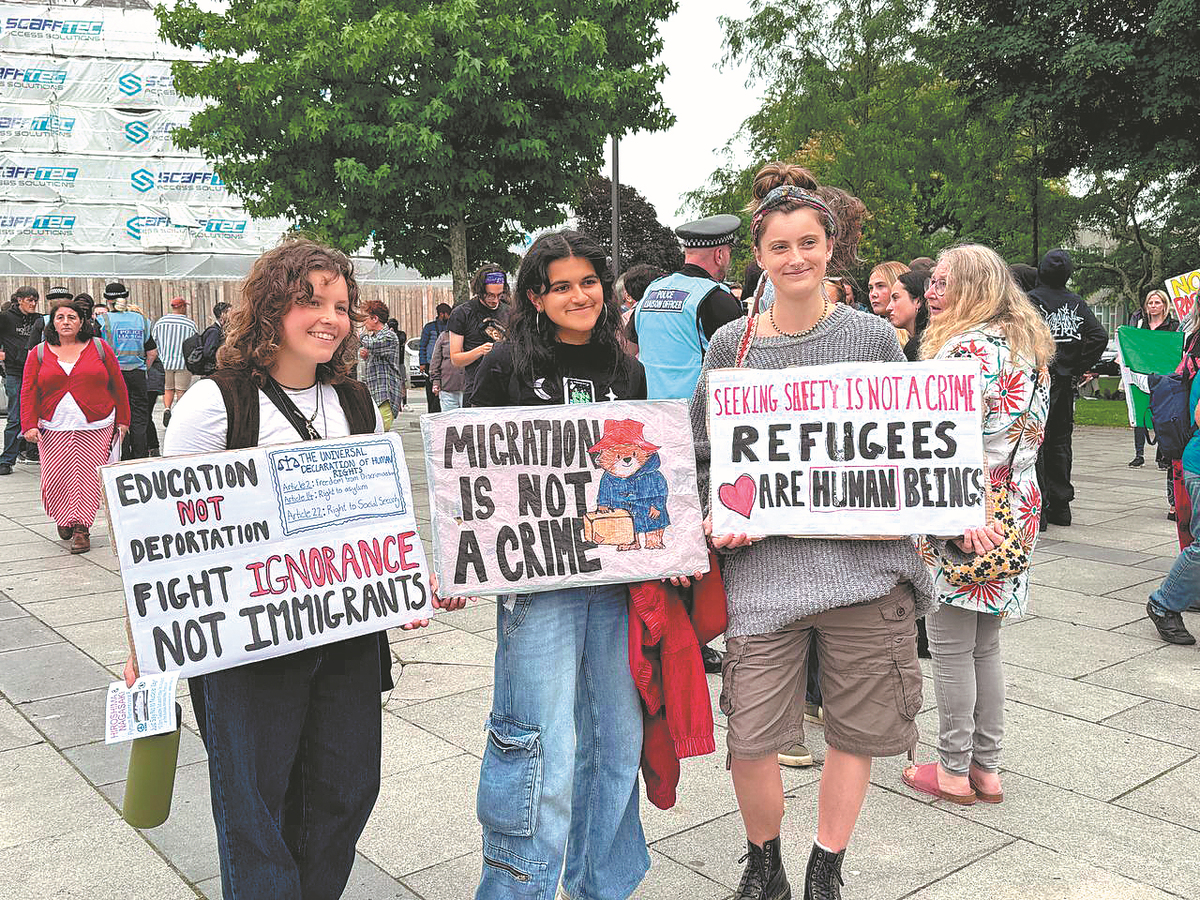UK's 'stop the boats' policy 'costing lives'


The United Kingdom's "stop the boats" policy has put migrants in harm's way, according to human rights groups.
The policy, which the nation's previous Conservative Party government introduced and the new Labour Party government has not yet abandoned, includes an agreement between the UK and France to ramp up law enforcement efforts aimed at stopping the flow of small boats carrying migrants across the English Channel.
The agreement calls for the UK to pay France about 476 million pounds ($588 million) over three years, to support additional patrols.
But several NGOs, including Utopia 56 and Alarm Phone, warned this week that the policy is leading to overcrowded boats leaving France and a higher risk of migrants on board being suffocated or crushed to death.
The NGOs told The Guardian newspaper they counted seven deaths in just 16 days during July, and that at least 62 people had perished attempting to enter the UK since March 2023, when the "stop the boats" agreement began.
The groups believe the heavy police presence on French beaches has deterred people smugglers, leading to a reduced number of boats making the crossing, which have become more overcrowded as a result.
The NGOs said the UK government could fix the problem by offering safe routes into the UK for anyone wanting to claim asylum.
But such a relaxation would likely lead to more people entering the country, and the existing rate is already too much for some Britons to bear, with more than 45,000 migrants known to have entered the country during 2022 alone.
Far-right groups
The influx has put pressure on services and has been exploited by far-right groups that have used online misinformation and hyperbole to spark riots across the nation over the past week, following the deadly stabbings of three children in the northwestern town of Southport on July 29.
The Hope not Hate advocacy group has reported that many rioters have chanted "stop the boats" during violent incidents around mosques and hotels used by asylumseekers.
"While many, or even most of those who have attended are not part of any traditional far-right organization, they are inspired by far-right misinformation and are engaging in far-right activism," Hope not Hate added.
Keir Starmer, the UK's new prime minister who took over from predecessor Rishi Sunak on July 5, has not yet said whether he is committed to continue the "stop the boats" policy.
However, he has said that all those involved in the riots, which have flared up in towns and cities including Blackpool, Bolton, Hull, Leeds, Liverpool, Manchester, Nottingham, Rotherham, Sunderland and Tamworth, will be punished.
Starmer said on Monday that a "standing army" of specialist police officers would be established to deal with riots.
He made the announcement after an emergency meeting with ministers and top law enforcement officials after protesters violently clashed with police officers and counterprotesters across the country.
Police have arrested 378 people since the start of the disorder, the UK's National Police Chiefs' Council said on Monday.
Gavin Stephens, chair of the council, said he expects the number to rise each day as police forces continue to identify those involved and continue to apprehend those responsible.
"Violent disorder is a serious offense which often comes with a lengthy jail term," said Stephens.
Following the emergency meeting, Starmer said the government will "ramp up criminal justice" to ensure that "sanctions are swift".
Xinhua contributed to this story.

































